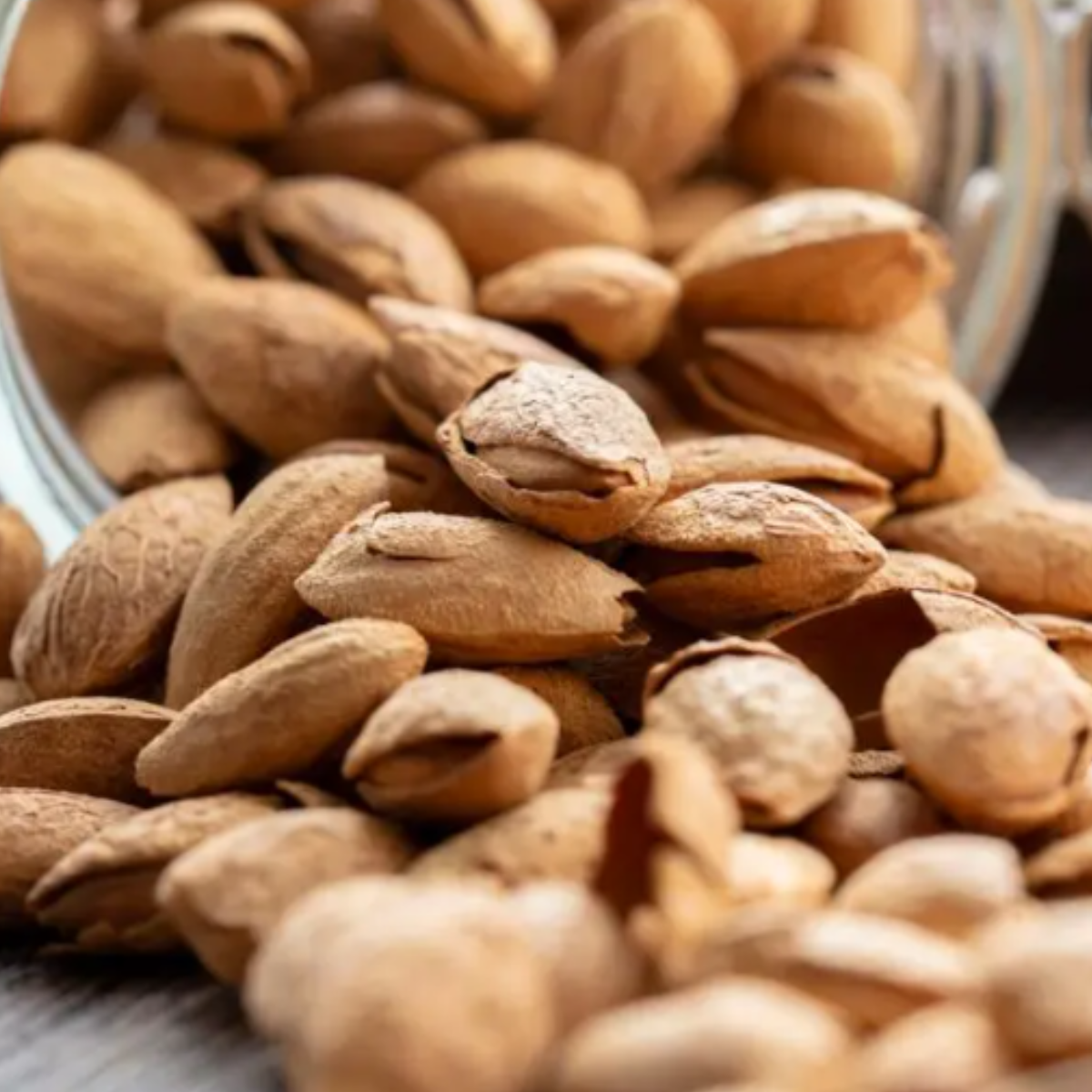Will almonds be part of a cancer-fighting arsenal one day ?
A recent PET scan revealed cancer growth in one of my lymph nodes, a setback that means I get more chemotherapy.My doctor characterized this as “a bump in the road” as opposed to “a major detour,” but the disappointment left me with an overwhelming feeling of losing control. I had thought the chemotherapy I got over the summer had kept the cancer at bay, but the results from the positrone.
By Debra Sherman
A recent PET scan revealed cancer growth in one of my lymph nodes, a setback that means I get more chemotherapy.
My doctor characterized this as “a bump in the road” as opposed to “a major detour,” but the disappointment left me with an overwhelming feeling of losing control. I had thought the chemotherapy I got over the summer had kept the cancer at bay, but the results from the positron emission tomography (PET) scan showed otherwise.
Within days of getting my test results, I came upon an article, published by MD Anderson in Houston, where I am being treated, that addressed the role of diet and cancer. I learned that that my vegetarian diet, which I’ve followed for more than 3 decades, might be tweaked and tailored to help fight my disease.
Certain foods long have been known to help ward off cancer. Nutrients found in broccoli, cabbage and blueberries, for example, have the capability to sweep away cancer cells floating around a healthy body. But can they help someone who already has cancer, like me?
They can, according to a burgeoning body of science dubbed “Nutrigenomics,” says Dr. David Katz, director of the Prevention Research Center at Yale University.
“Food is powerful medicine. You can’t change the genes you have, but you can change the behavior of your genes by the foods you eat,” Katz says in a telephone interview.
One’s genetic makeup dictates how the body reacts to cancer and genes can be turned on or or off, and can even be coded to fight cancer. The right foods can help a person’s body find the on-off switch.
The eventual goal of a cancer-fighting diet is to optimize the body’s monitoring system, or immunosurveillance, and then direct the immune system to suppress abnormal cells.
How a patient reacts to food nutrients depends on their particular genetic makeup, and scientists are exploring the role of vitamins, minerals and bioactive food compounds in gene expression.
Some day in the future, doctors may prescribe a personalized nutritional regimen to treat a patient’s cancer.
I asked Alicia Gilmore, a clinical dietician at MD Anderson, to offer specific recommendations to me, a stage 4 non-small cell lung cancer patient.
She told me to avoid megadoses or supplements of anything, adding that all nutrients should come from food. She recommends a predominantly plant-based diet, pretty much what I already eat, except I’ll need to cut down on my sugar intake.
I told her I liked to put vegetables in a juicer, but she says it is best to limit juicing to 8 ounces per day. She says dark chocolate is good, but did not say how much I could have because it is not clear how much is beneficial.
Moreover, she suggests focusing on consuming adequate levels of Vitamin C (contained in citrus fruit and peppers), vitamin E (in seeds, nuts, spinach and avocados), and zinc (found in mussels, beans and mushrooms).
Stephanie Maxson, a clinical dietician at MD Anderson’s Integrative Medicine Center, cautions that most dietary recommendations assume that everyone has similar nutritional requirements, except to account for gender and age. For example, a woman has a greater need for iron if she is still menstruating, whereas an elderly woman will need more calcium to strengthen weakened bones after after menopause.
Leaps in understanding of the human genome indicate not everyone responds the same way to nutrients in the food they eat. There are variances similar to how drugs can affect people in different ways, she says.
Researchers are trying to discover gene-nutrient associations for all types of diseases, but especially for cancer, so patients can have diets tailored for them.
One example is the discovery that an inadequate intake of folate (one of the B vitamins) can heighten the risk of colorectal cancer. But the amount of folate needed in the diet to counteract the deficiency varies from person to person.
Some studies show that eating lots of cruciferous vegetables, such as cauliflower, kale, cabbage, and Brussels sprouts, lowers the risk of a recurrence of colorectal cancer. In this case, patients who have a lower expression of enzymes responsible for the secretion of a cancer-fighting nutrient called sulforaphane stand to benefit because these vegetables are rich in it.
Sulforaphane is one of thousands of phytonutrients, or phytochemicals, natural chemicals contained in foods are thought to be important for protecting against disease. Other important phytonutrients include flavonoids, found in apples and berries, and resveratol, found in grapes and wine.
“We know they are beneficial but we don’t know enough about which ones are important and what quantities…so we just recommend people get a variety,” Maxson says.
Nutrigenomics is still in its infancy but Maxson says it has huge potential. For now, she recommends a few basic dietary rules: Eat mostly plant-based foods, eat whole foods and avoid processed foods, don’t overdo it with a single nutrient. Those with a family history of cancer or who have had cancer should follow recommendations from the American Cancer Society.
In my next post, I’ll provide a broader list of some foods nutritionists say may be helpful to cancer patients.
Debra Sherman is a health reporter at Reuters.

